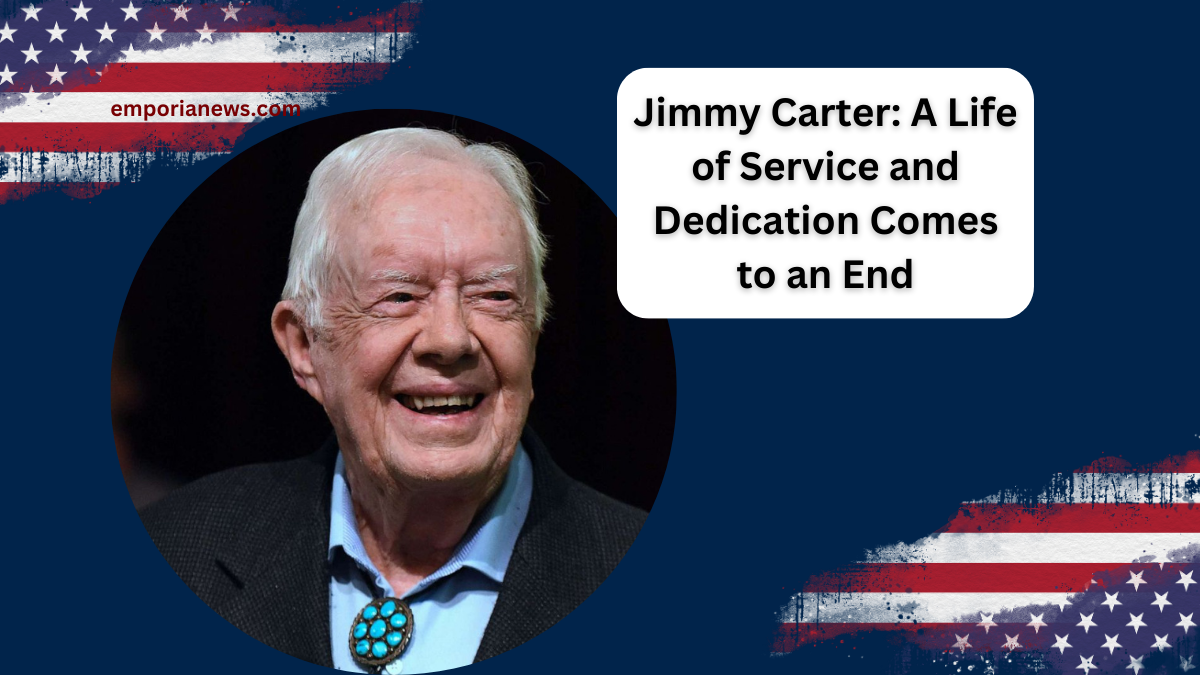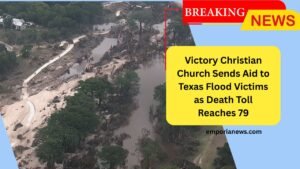Former President Jimmy Carter, renowned globally for his humanitarian efforts after his presidency, has passed away at the age of 100. While his tenure in the White House faced challenges, his post-presidential years defined him as a remarkable humanitarian.
A Family’s Tribute
Chip Carter, the former president’s son, stated, “My father was a hero, not only to me but to everyone who believes in peace, human rights, and unselfish love.” The Carter family expressed gratitude for the world’s acknowledgment of their father’s contributions, urging everyone to live by these shared values.
A Peaceful Passing in Plains, Georgia
Carter passed away in his hometown of Plains, Georgia. His death follows that of his wife of 77 years, Rosalynn, who passed away in November 2023. The couple had lived humbly in the house they built in 1961. In February 2023, Carter announced he would cease medical intervention and transition to hospice care.
The Longest-Living Former U.S. President
Jimmy Carter held the distinction of being the oldest living former U.S. president, surpassing George H.W. Bush in 2019. Despite facing significant health issues, including brain cancer in 2015 and surgery for a hip fracture in 2019, Carter remained active in charitable causes.
Key Achievements During His Presidency
- Camp David Accords: Brokered peace between Israel and Egypt.
- Panama Canal Treaty: Transferred control of the canal to Panama.
- Environmental Policies: Expanded public lands in Alaska.
- Diplomatic Relations: Established ties with China.
However, Carter’s presidency was marred by economic challenges, such as high inflation and unemployment, and the Iranian hostage crisis, which played a significant role in his defeat by Ronald Reagan in 1980.
The Iranian Hostage Crisis: A Defining Moment
The 444-day standoff involving 52 Americans held hostage in Iran significantly impacted Carter’s presidency. His diplomatic and economic responses, including sanctions and a failed rescue mission, contributed to public perception of his leadership struggles.
A Nobel Laureate and Global Humanitarian
Carter was awarded the Nobel Peace Prize in 2002 for his relentless efforts to resolve conflicts, advance democracy, and combat disease. His most notable humanitarian achievements include:
| Initiative | Impact |
|---|---|
| Habitat for Humanity | Built homes for underserved communities. |
| Guinea Worm Eradication | Reduced cases from 3.5 million to 27 by 2020. |
| Election Monitoring | Ensured fair elections in numerous countries. |
Early Life and Entry Into Politics
Born on October 1, 1924, in Plains, Georgia, Jimmy Carter was raised on his family’s peanut farm. After graduating from the U.S. Naval Academy, Carter served in the Navy, pioneering nuclear-powered submarines. Following his father’s death in 1953, Carter returned to Plains to manage the family farm, eventually entering politics.
As governor of Georgia, Carter declared the end of segregation, positioning himself as a symbol of a new South. Despite initial skepticism, his grassroots campaign for the presidency in 1976 capitalized on public discontent following the Watergate scandal.
Post-Presidency: A Life of Service
After leaving the White House, Carter dedicated his life to humanitarian work through the Carter Center, focusing on global health and peace initiatives. He mediated conflicts in countries like Nicaragua, Ethiopia, and Sudan, and advocated for nuclear disarmament in North Korea.
A Humble and Grounded Life
Unlike many modern presidents, Carter chose a modest lifestyle. He returned to Plains, where he taught Sunday school at Maranatha Baptist Church and lived in the same modest home he built decades earlier.
FAQs
1. What were Jimmy Carter’s most notable achievements as president?
Carter’s presidency is remembered for the Camp David Accords, environmental policies, and his efforts to improve U.S.-China relations.
2. What made Jimmy Carter’s post-presidential years unique?
Carter focused on global humanitarian work, including disease eradication and election monitoring, earning him the Nobel Peace Prize in 2002.
3. What challenges defined Carter’s presidency?
Carter faced soaring inflation, high unemployment, and the Iranian hostage crisis, which overshadowed his achievements.
4. How did Jimmy Carter contribute to the fight against Guinea worm disease?
Through the Carter Center, Carter’s efforts reduced Guinea worm cases from 3.5 million in 1986 to just 27 in 2020.
5. What is Jimmy Carter’s legacy?
Carter’s legacy lies in his commitment to peace, human rights, and humanitarian service, which defined his life both during and after his presidency.




